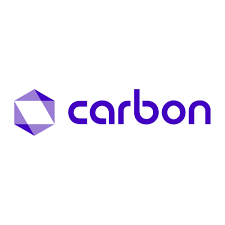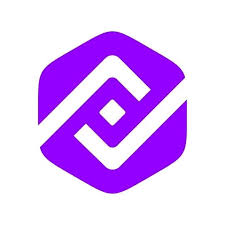Digital Maadili Program Presents: The 2025 Digital Humanism Summer School (DigiHum) in Rwanda for All African Students
Deadline has been shifted to the 9th May, 2025. If you are yet to apply… NOW is the time!
Join leading experts in informatics, social sciences, and humanities to collaborate on pressing issues of digital politics, economy, and technology!
About The 2025 Digital Humanism Summer School
Digital Humanism is an interdisciplinary field that explores the intricate relationship between technology and humanity, with the goal of fostering a society where technological advancements serve to enhance human rights, democracy, and inclusion.
It recognizes the need for an interdisciplinary approach, integrating perspectives from humanities, social sciences, engineering, and technology.
The aim of this Summer School on Digital Humanism in Africa is to provide a platform to delve into key issues related to the development and governance of technology within the African context.
The program will address critical themes such as digital participation, democracy, sovereignty in the digital age, the impact of platforms on the economy, privacy concerns, ethical AI, and the creation of fair systems.
Globally recognized experts from fields such as computer science, social sciences, law, and humanities will lead discussions and interactive sessions.
These will examine how Digital Humanism can help shape technology policy and innovation in Africa to promote diversity, inclusion, and ethical governance.
The school – it is an in-person event – is designed in an interactive and interdisciplinary manner, it is open for participants from the different disciplines mentioned (humanities, social, technical, and engineering sciences).
It is open to students at the PhD and Master levels as well as interested and qualified persons from industry, institutions, and civil society.
Building on the success of prior global Digital Humanism initiatives, this Africa-focused edition will provide a unique opportunity to engage with the challenges and opportunities that digital transformation presents to the continent.
Participants will gain hands-on experience, engage in policy dialogue, and contribute to the growing global conversation on how technology can be aligned with human values.
A typical course is broad enough to provide a general introduction to the chosen topic, whilst also allowing students can learn the most relevant contributions in depth.
In addition, there is enough room for discussions and presentations of participants’ projects. This year, DigiHum will be happening in the great city of Kigali, at Carnegie Mellon University Africa.
Learning Objectives for The 2025 Digital Humanism Summer School
Identify key challenges and opportunities that digital transformation presents within Africa, understanding both the potential and the risks involved.
Discuss essential issues related to technology development and governance, including digital participation, democratic processes, digital sovereignty, the economic impact of digital platforms, privacy concerns, ethical AI practices, and the creation of equitable systems tailored to an African context.
Analyze and develop strategies to shape technology policy and foster innovation in Africa, with a focus on promoting diversity, inclusion, and ethical governance.
The 2025 Digital Humanism Summer School Synopsis
- Type: Fellowship, Masters, PhD scholarships
- Location: Carnegie Mellon University Africa, Kigali, Rwanda
- Date: 14-18 July, 2025
- Funding Types: Fully and Partially Funded
- Eligible Countries: All African Countries
- Some of the Perks: Collaborative Learning with Experts, Access to World-Class Academic Environment, Certificate of Participation, Full scholarships covering the cost of the program, flight, and accommodations, etc
- Deadline: 9th May, 2025
Eligibility Requirements Of The 2025 Digital Humanism Summer School
- Applications are open to students, researchers, and professionals with a background or strong interest in technology, humanities, and social sciences.
- African candidates, females, and young researchers are strongly encouraged to apply.
- Scholarships are available to applicants who show a dedication and a track record of expertise and interest in the development of Digital Humanism in Africa.
Benefits of The 2025 Digital Humanism Summer School
Collaborative Learning with Experts:
- Participants will engage in hands-on projects alongside peers and leading scholars in Digital Humanism, AI, and technology governance.
- This immersive experience fosters interdisciplinary problem-solving and real-world application of key concepts.
Recognition of Participation:
- All participants will receive an official Certificate of Participation, affirming their involvement in a program backed by internationally recognized institutions.
World-Class Academic Environment:
- Participants will benefit from the intellectual environment of Carnegie Mellon University Africa — a globally renowned institution at the forefront of AI, technology innovation, and policy in Africa.
Networking and Global Exposure:
- The program offers a unique opportunity to connect with international experts, policymakers, and fellow changemakers working at the intersection of technology, ethics, and African development.
Empowerment for Impact:
- By the end of the program, participants will be equipped with the tools to critically engage with Africa’s digital transformation and contribute meaningfully to inclusive and ethical tech policy and innovation across the continent.
- Full scholarships that cover the cost of the program, flight, and accommodations for the duration of the conference
- Partial Scholarship: Just cover the cost of the program ($400).
Guidelines for Application for the The 2025 Digital Humanism Summer School
- Statement of Purpose – Provide a clear motivation for attending, highlighting how the program aligns with your academic or professional goals.
- Relevant Experience – Demonstrate past engagement in digital humanism, technology policy, ethics, or related fields through research, projects, or leadership roles.
- Potential Contribution – Explain how your participation will enrich discussions and contribute to the Summer School’s objectives.
- Supporting Evidence – Include relevant publications, awards, leadership roles, or testimonials that strengthen your application.
- Commitment – Ensure availability for the full program duration (July 14-18, 2025) and active participation in discussions and activities.
- Scholarship – Scholarships are available to candidates who show a strong interest in AI development, policy, digital ethics, and career contributions to IT development in Africa.
For more information, please check the website: https://dighum.kcrc.rw/
Application Deadline: May 9th, 2025
Apply Here for The 2025 Digital Humanism Summer School







